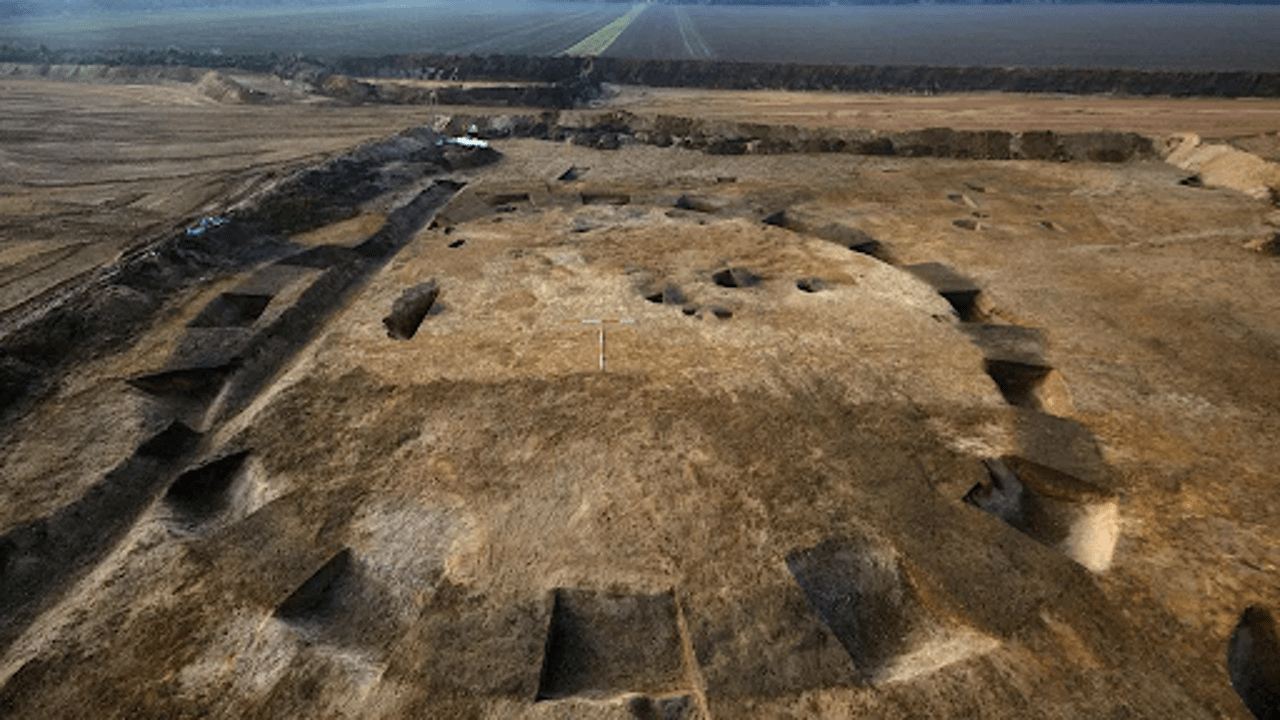
Digging at the West Deeping quarry has uncovered a burial mound from the Bronze Age. BBC
An archaeological dig in Lincolnshire has uncovered a remarkable 6,000 years of history, revealing evidence of ancient settlements and agricultural practices. The excavation, conducted at the West Deeping quarry, has brought to light a treasure trove of artifacts spanning from the Neolithic and Bronze Ages to Roman times.
Among the oldest discoveries are cooking and eating pottery, which provide insights into the daily lives of those who lived in the area long ago. The findings include a Roman settlement and artifacts from various other historical periods, making this site a significant archaeological location.
A special exhibition showcasing some of these discoveries will be held at the West Deeping village hall this Saturday, from 1 PM to 5 PM BST. It offers a unique opportunity for the public to engage with the past and learn more about the lives of ancient inhabitants.
Hannah Barrett, a project officer with the Cambridge Archaeological Unit, expressed her excitement about the site. "This site isn't just Neolithic, Bronze Age, or Roman; we have all of the periods right through to Saxon in the 6th Century. All of these periods are represented, and every single one has a good story to tell," she stated. Barrett noted the significance of the finds, especially a large collection of pottery from the later Neolithic period, which is the largest ever discovered in East Anglia or the East Midlands.
The excavation has also unearthed animal bones and environmental samples, including seeds and grains, offering a glimpse into the diet and hunting practices of the past. Barrett shared her thoughts on the landscape during that time, describing it as "wild," filled with animals such as wild boar and bears. She noted the toughness of the people who lived there, highlighting their impressive skills in crafting sophisticated flint tools and pottery.
Researchers have found the remains of a Roman barn at the location. BBC
One of the most exciting discoveries at the site was the foundations of a Roman barn, which provided valuable information about agricultural practices during that era. In addition to the barn, archaeologists found a carved stone figure of Mars, the Roman god of war, depicted in a tunic while holding a shield and spear. They also uncovered an early Bronze Age burial mound, adding to the historical significance of the area.
Maggie Ashcroft, chair of the West Deeping Heritage Group, expressed her enthusiasm for the exhibition, stating, "It is a real privilege to be able to see some of the archaeologists’ finds before they go into storage and to hear about their discoveries before the final report is even published." The exhibition promises to be a fantastic opportunity for the community to connect with their rich local history and understand the lives of those who came before them.
As the exhibition approaches, the excitement surrounding these ancient discoveries continues to grow, showcasing the importance of archaeological work in uncovering the stories of our past.















